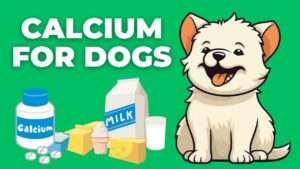Asparagus, with its slender stalks and unique flavor, is a favorite vegetable among many humans.
But as a responsible pet owner, you may wonder whether this nutritious veggie is safe for your canine companion.
In this comprehensive guide, we’ll delve into the topic of whether dogs can eat asparagus, examining both its potential benefits and risks.
Contents Overview
What are Asparagus?
Asparagus is a flowering perennial plant that belongs to the lily family. It is prized for its tender shoots, which are harvested and consumed as a vegetable.
Available in green, white, and purple varieties, asparagus is renowned for its distinct taste and versatility in culinary applications.
Nutritional Value of Asparagus
Before determining whether dogs can safely consume asparagus, it’s essential to understand its nutritional composition.
Asparagus boasts an array of vitamins, minerals, and antioxidants that offer various health benefits.
Here’s a brief overview of the nutrients found in asparagus:
- Fiber: Asparagus is rich in dietary fiber, which promotes digestive health and helps regulate bowel movements.
- Vitamins: It contains vitamins A, C, E, and K, all of which play vital roles in supporting overall health and well-being.
- Minerals: Asparagus is a good source of potassium, folate, and iron, essential for maintaining proper bodily functions.
- Antioxidants: Asparagus contains antioxidants such as glutathione and various flavonoids, which help combat oxidative stress and inflammation.
Can Dogs Safely Consume Asparagus?
Yes, dogs can safely eat asparagus in moderation. Asparagus is a nutrient-rich vegetable that can provide health benefits to your furry friend.
However, there are a few things to keep in mind:
- Asparagus should be served plain, without any seasoning or sauces that may be harmful to dogs.
- Cut the asparagus into bite-sized pieces to prevent choking hazards.
- Introduce asparagus gradually into your dog’s diet to watch for any adverse reactions.
- Monitor your dog’s digestion after eating asparagus, as some dogs may experience gas or gastrointestinal upset.
- Overall, asparagus can be a healthy addition to your dog’s diet when given in appropriate portions and prepared safely.
Potential Benefits of Asparagus to Dogs
Incorporating moderate amounts of asparagus into your dog’s diet may offer several potential benefits:
1- Improved Digestive Health:
Asparagus is a good source of fiber, which can aid in digestion and regulate bowel movements, potentially alleviating constipation or diarrhea in dogs.
2- Weight Management:
Asparagus is low in calories and fat but high in fiber, making it a suitable addition to a weight management diet for overweight or obese dogs. Its fibrous nature can help your dog feel full without consuming excess calories.
3- Nutritional Boost:
Asparagus provides essential vitamins and minerals, including vitamin A, which promotes healthy skin and coat, and vitamin C, which supports the immune system. Adding small amounts of asparagus to your dog’s diet can contribute to their overall nutritional intake.
4- Hydration Support:
Asparagus has a high water content, which can help keep your dog hydrated, especially during warmer months or after physical activity.
5- Antioxidant Properties:
The antioxidants present in asparagus may help protect your dog’s cells from oxidative damage, potentially reducing the risk of certain diseases and supporting overall health and longevity.
Potential Risks and Precautions of Feeding Asparagus to Dogs
In this section, we’ll explore the potential risks associated with feeding asparagus to dogs and discuss important precautions to mitigate these risks effectively.
1- Risks of Feeding Asparagus to Dogs
Despite its nutritional value, feeding asparagus to dogs can pose certain risks, especially if not handled or prepared correctly. Here are some potential risks to consider:
A- Choking Hazard
Asparagus spears can be fibrous and tough, posing a choking hazard, especially if served raw or in large pieces.
Dogs may struggle to chew and swallow them properly, leading to choking or gastrointestinal obstruction.
B- Digestive Upset
Asparagus contains certain compounds that may be difficult for some dogs to digest, leading to gastrointestinal upset such as gas, bloating, diarrhea, or vomiting.
Cooking asparagus can help break down these compounds and make it easier for dogs to digest.
C- Urinary Issues
Asparagus is known to contain high levels of purines, which can break down into uric acid.
In dogs predisposed to certain urinary conditions, such as bladder stones or urinary tract infections, consuming asparagus may exacerbate these issues or increase the risk of developing them.
D- Allergic Reactions
Some dogs may be allergic to asparagus or may develop intolerance to certain components present in this vegetable.
Allergic reactions can manifest as itching, skin rashes, hives, swelling, vomiting, or diarrhea. It’s essential to monitor your dog closely for any signs of allergic reactions after introducing asparagus to their diet.
2- Precautions When Feeding Asparagus to Dogs
To minimize the risks associated with feeding asparagus to dogs, it’s crucial to take the following precautions:
A- Cook Thoroughly
Always cook asparagus thoroughly before serving it to your dog.
Cooking helps soften the fibrous texture and break down potentially indigestible compounds, making it safer and easier for dogs to consume and digest.
B- Cut into Small Pieces
When serving cooked asparagus to your dog, cut it into small, bite-sized pieces to reduce the risk of choking and ensure easier digestion.
C- Monitor Portion Sizes
Introduce asparagus into your dog’s diet gradually and in moderation.
Avoid feeding large quantities at once, as this can overwhelm your dog’s digestive system and increase the risk of digestive upset.
D- Observe for Adverse Reactions
Keep a close eye on your dog after feeding them asparagus for any signs of adverse reactions or digestive issues.
If you notice any unusual symptoms, such as vomiting, diarrhea, or distress, discontinue feeding asparagus and consult your veterinarian promptly.
E- Consult with Your Veterinarian
Before introducing any new food into your dog’s diet, including asparagus, consult with your veterinarian.
They can provide personalized recommendations based on your dog’s health status, dietary needs, and any underlying medical conditions.
Safe Ways to Feed Asparagus to Dogs
In this section, we’ll explore safe ways to feed asparagus to dogs, emphasizing preparation methods and serving techniques that prioritize your dog’s health and well-being.
1- Safe Preparation Methods
Before feeding asparagus to your dog, it’s essential to prepare it properly to ensure it’s safe and easy for them to consume. Here are some safe preparation methods:
A- Cooking
Cooking asparagus thoroughly is crucial to make it safe for your dog to eat.
Cooking softens the fibrous texture and breaks down potentially indigestible compounds, making it easier for dogs to digest and reducing the risk of gastrointestinal upset.
Steaming, boiling, or roasting are suitable cooking methods for asparagus.
B- Cutting into Small Pieces
After cooking, cut the asparagus into small, bite-sized pieces to prevent choking and facilitate easier chewing and digestion for your dog.
Avoid serving large pieces or whole spears, as these can pose a choking hazard, especially for smaller dogs or those prone to gulping their food.
C- Removing Tough Ends
Trim the tough ends of the asparagus spears before cooking to remove any woody or fibrous portions.
This ensures that your dog receives only the tender, edible parts of the vegetable, making it easier for them to chew and digest.
2- Safe Serving Techniques
In addition to proper preparation methods, how you serve asparagus to your dog also plays a crucial role in ensuring their safety and enjoyment. Here are some safe serving techniques:
A- Mixing with Regular Food
Mix cooked and chopped asparagus with your dog’s regular food to incorporate it into their diet gradually.
This allows your dog to adjust to the new taste and texture while still enjoying their familiar meals. Start with small amounts and gradually increase the portion size as tolerated.
B- Using as a Healthy Treat
Offer cooked asparagus pieces to your dog as a healthy treat or reward during training sessions.
This provides a nutritious alternative to store-bought treats and allows you to control the ingredients your dog consumes. Remember to adjust your dog’s daily calorie intake accordingly to prevent overfeeding.
C- Adding to Homemade Meals
If you prepare homemade meals for your dog, consider adding cooked asparagus as one of the ingredients.
Mix it with other dog-friendly vegetables, lean proteins, and grains to create balanced and nutritious meals that meet your dog’s dietary needs.
D- Monitoring Portion Sizes
While asparagus can be a healthy addition to your dog’s diet, it’s essential to monitor the portion sizes to avoid overfeeding.
Asparagus should make up only a small portion of your dog’s overall diet and should be balanced with other food sources to ensure nutritional adequacy.
When to Avoid Asparagus to Dog
Urinary Issues
Avoid feeding asparagus to dogs prone to urinary conditions like bladder stones or infections due to its high purine content, which can exacerbate these issues.Allergic Reactions
Steer clear of asparagus if your dog has shown allergic reactions to other vegetables or if they develop symptoms like itching, vomiting, or diarrhea after consuming it.Digestive Sensitivity
If your dog has a sensitive stomach or experiences gastrointestinal upset easily, avoid introducing asparagus or monitor closely for any adverse reactions.Choking Hazard
Refrain from feeding raw or large pieces of asparagus to dogs, especially those prone to gulping their food, to prevent choking or gastrointestinal obstruction.Medication Interactions
Avoid giving asparagus to dogs taking certain medications or undergoing specific treatments without consulting a veterinarian, as it may interact adversely with their medication regimen.
Safe and Suitable Alternatives of Asparagus for Dogs
If you’re looking for safe and suitable alternatives to asparagus for your dog, consider incorporating other dog-friendly vegetables into their diet.
Vegetables such as broccoli, green beans, carrots, and sweet potatoes are excellent choices that offer similar nutritional benefits without the potential risks associated with asparagus.
These vegetables are rich in essential vitamins, minerals, and fiber, promoting digestive health, supporting the immune system, and providing valuable antioxidants.
When introducing new vegetables to your dog’s diet, remember to cook them thoroughly, cut them into small, manageable pieces, and monitor your dog for any adverse reactions.
With a variety of nutritious options available, you can ensure your dog receives a well-balanced diet that meets their nutritional needs and supports their overall health and well-being.
Bottom Line
In conclusion, while dogs can safely consume asparagus in moderation, it’s essential to be mindful of potential risks such as digestive upset and choking hazards.
Asparagus can provide a nutritious addition to your dog’s diet, offering vitamins, minerals, and antioxidants that support their overall health.
However, it’s crucial to introduce asparagus gradually and monitor your dog’s response. If you have any concerns or if your dog has pre-existing health conditions, consult with your veterinarian before incorporating asparagus into their diet.




































+ There are no comments
Add yours